Inside the Place Where You Can Learn One-on-One About Steven Spielberg’s Vulnerability
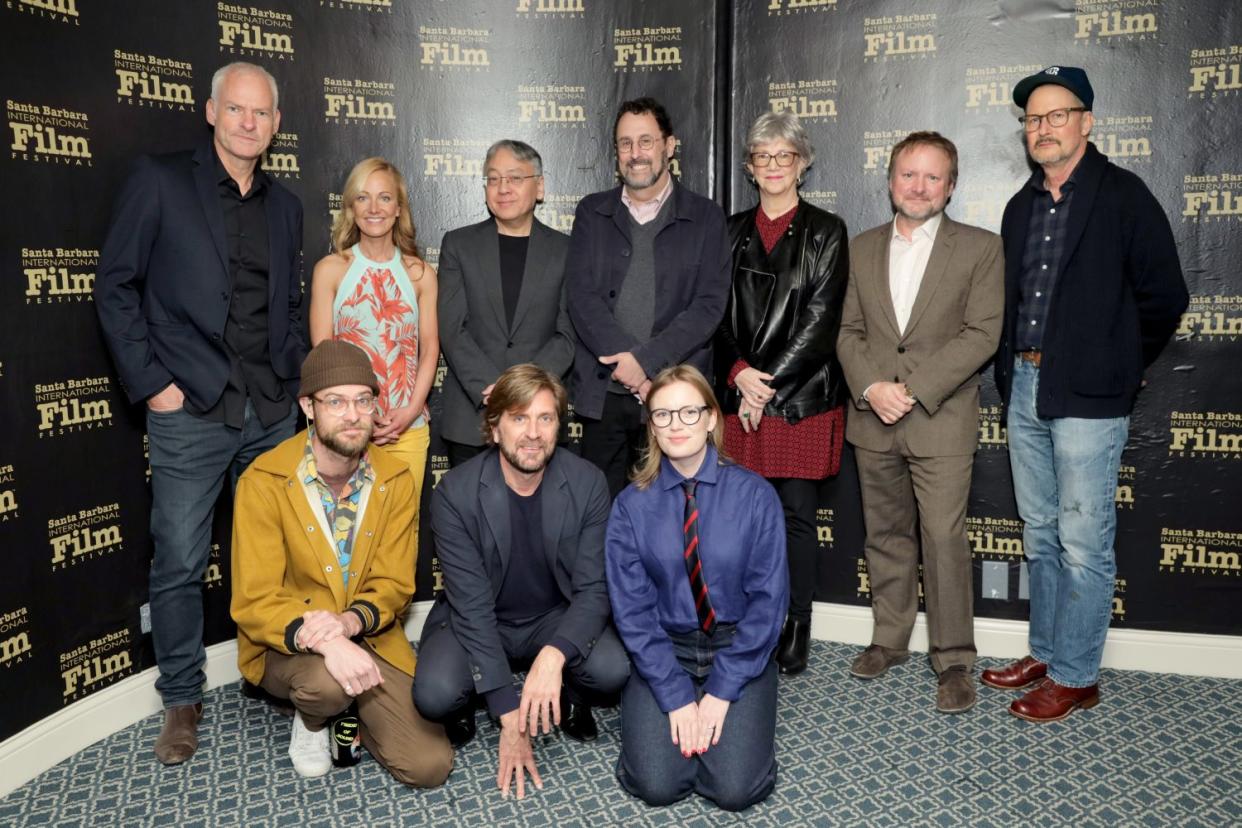
- Oops!Something went wrong.Please try again later.
- Oops!Something went wrong.Please try again later.
- Oops!Something went wrong.Please try again later.
- Oops!Something went wrong.Please try again later.
- Oops!Something went wrong.Please try again later.
- Oops!Something went wrong.Please try again later.
- Oops!Something went wrong.Please try again later.
- Oops!Something went wrong.Please try again later.
Every year, I get a kick out of interviewing the Oscar-nominated screenwriters at the Santa Barbara International Film Festival. This year’s panel was intimidating: In addition to their awards-season laurels, they included a Nobel Prize winner (Kazuo Ishiguro), a Pulitzer Prize winner (Tony Kushner) and a professional triathlete (Lesley Paterson). It was also a lot of fun.
Here’s a few highlights of what I gleaned from these brilliant writers.
More from IndieWire
Jerry Bruckheimer's 7-Step Formula for 'Top Gun: Maverick' Is Worth Hollywood's Attention
Oscars 2023: Here's How 'All Quiet on the Western Front' Could Dominate the Craft Races
1. Todd Field relies on his visions.
He first imagined Lydia Tar 10 years ago, but it wasn’t until the pandemic (while, he said, he was tired of looking for toilet paper on Maine’s Route One) that he realized that she was the conductor of a major European orchestra. “She was sitting on top of a power structure,” he said. “She could’ve been sitting atop anything. She kept bothering me, and she wouldn’t go away.”
Field tries to avoid writing for a specific actor, but Blanchett kept appearing to him after they met on another possible project. “I didn’t question that,” he said. “It’s meant to be her. She thinks like a writer. And she thinks like a filmmaker. You’re having a conversation with more than your equal: She looks at the whole thing, and not just her part.”
During production in Germany, he desperately needed the Dresden Philharmonic Orchestra to vote to work with him and he had only one production window. “No way could we go over,” he said. “We didn’t have the green light to work with them until days before we started. We had no Plan B. It was really, really terrifying.”
2. Tony Kushner was kinder and gentler with Steven Spielberg on “The Fabelmans.”
After the director recruited the playwright to write “Munich,” Kushner learned about Spielberg’s personal story. They talked about it for 10 years; on the producers’ panel producer Kristie Macosko Krieger said she never expected them to turn their lengthy notes and outlines into anything concrete until they wrote the screenplay over eight weeks during the pandemic.
In addition to “Munich,” his history with the director includes “Lincoln” and “West Side Story.” Sometimes their creative process can get passionate and vocal, but Kushner knew that Spielberg was more vulnerable during this process. “I decided that I was going to have to scream and yell less,” said Kushner, “because it’s his story and I am co-writing the script, and we’re going to run through the script together word for word. So in some ways, it was less contentious. It was a terrifying film for him to make because he’d never done anything like it in six decades of filmmaking. He had never really done anything quite like this before that’s entirely character-driven and intimate.”
Spielberg gave his sisters the script for approval. They did, but they’d never known the secret about their mother that Spielberg carried for decades. On set, the sisters helped recreate their childhood homes and find the right shade of lipstick for their mother. “He was trying to get his mother and father back,” said Krieger. “He was ready to be open and forgive and give of himself in a way I’d never seen before.”
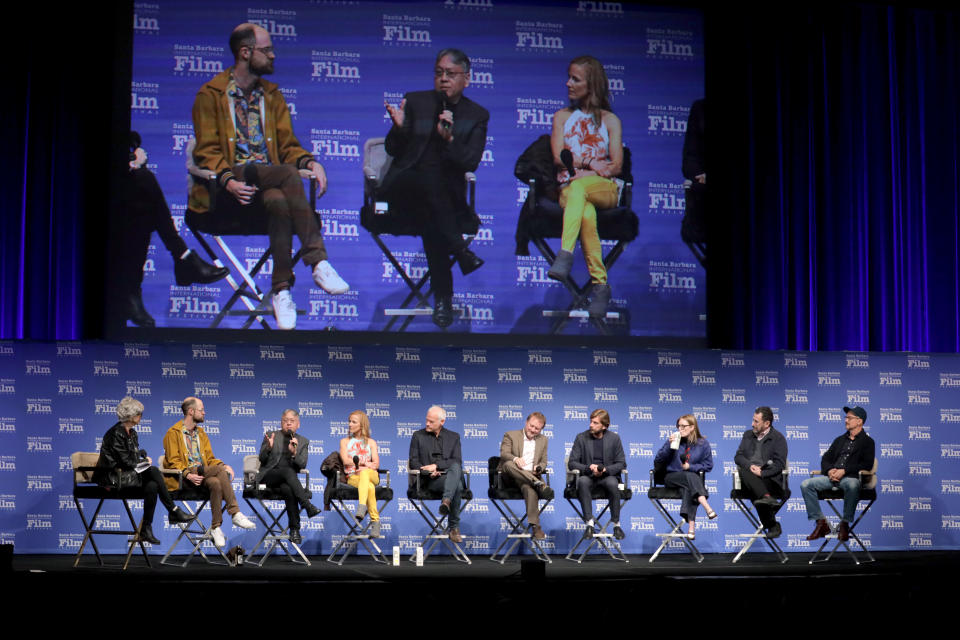
Getty Images for SBIFF
3. “Everything Everywhere All at Once” morphed constantly between six years of writing through the final edit.
Daniel Kwan pitched the seed of the idea to Daniel Scheinert while they edited “Swiss Army Man” is 2015. However, Scheinert said even from their early days in shooting music videos, one his roles in the Daniels partnership is helping his collaborator finish things. By the time they landed Michelle Yeoh (and turned down a chance to direct Marvel’s “Loki”), the duo knew the movie was more than a chaotic multiverse action comedy; it was also a moving family drama.
“Michelle’s schedule would change. And then we take a look at the script and be like, ‘Let’s make it better,'” said Scheinert. “The ideas that attract us are ones that we’re going to keep trying to rewrite straight up until the sound mix. We knew this idea would never get boring, or we’d never be that confident that we nailed it. It was so manic and unusual that it kept us engaged, so we didn’t feel done until literally the last day of the sound mix. The composers were redoing one of the songs, and we weren’t sure if it worked, and we were so nervous that the movie didn’t work.
“Our process is just this messy, try-everything journey,” Scheinert added. “That takes years. It never feels done. It’s just a bunch of problem solving for years.”
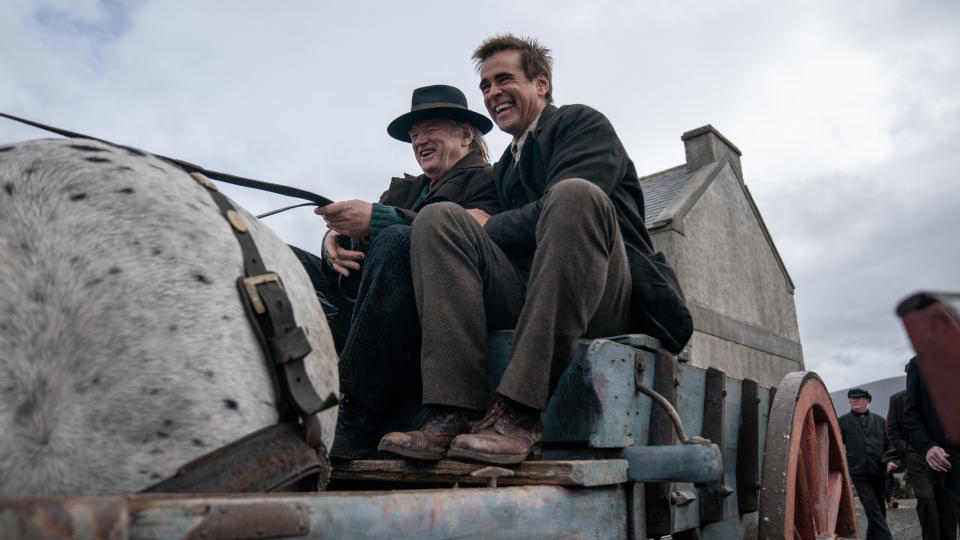
Photo by Jonathan Hession. Courtesy of Searchlight Pictures
4. Martin McDonagh didn’t start writing “The Banshees of Inisherin” knowing about the fingers.
“I don’t like to outline, I don’t like to plot things out at all,” McDonagh said. “Even though my stuff can be quite cloudy, I like the surprise of one dialogue scene telling you what the next scene is, and being surprised at that. That’s sometimes why twists and turns can happen in some of my stuff. In this one, the threat that Brendan [makes, to cut off his fingers], I didn’t know that he was gonna say that when he came into the bar. That was a nice surprise to me, but then that gives you the plot for the next 20-30 pages. In fact, that gives you the floor toward the end of the film.”
The film won the Golden Globe for Best Comedy, but McDonagh disagrees: He says it’s not a comedy. “I go along with that debate,” he said. “I find it quite sad. I’ve got some jokes in here, but I guess overall it’s all about existential dread. So that doesn’t usually bring a lot of laughs. But I guess most of my stuff has been some kind of balance between funny and dreadful.”
4. Winning a triathlete competition provided the money to option “All Quiet on the Western Front.”
Scottish screenwriter and professional triathlete Lesley Paterson broke her shoulder the day before, but she painfully swam, biked, and ran with one arm to win the 2016 race because renewing the option needed her prize money. “Let’s just say I find purpose and meaning through suffering,” she said. “Seeing it from the other side was such a huge piece of why we wanted to struggle to get it off the ground. We’re so used to seeing the Germans as the enemy and that there’s no humanity around them. Really, this is a story about the betrayal of a youthful generation, regardless of which country that you’re from. We’re so polarized in today’s society with the way that you think.”
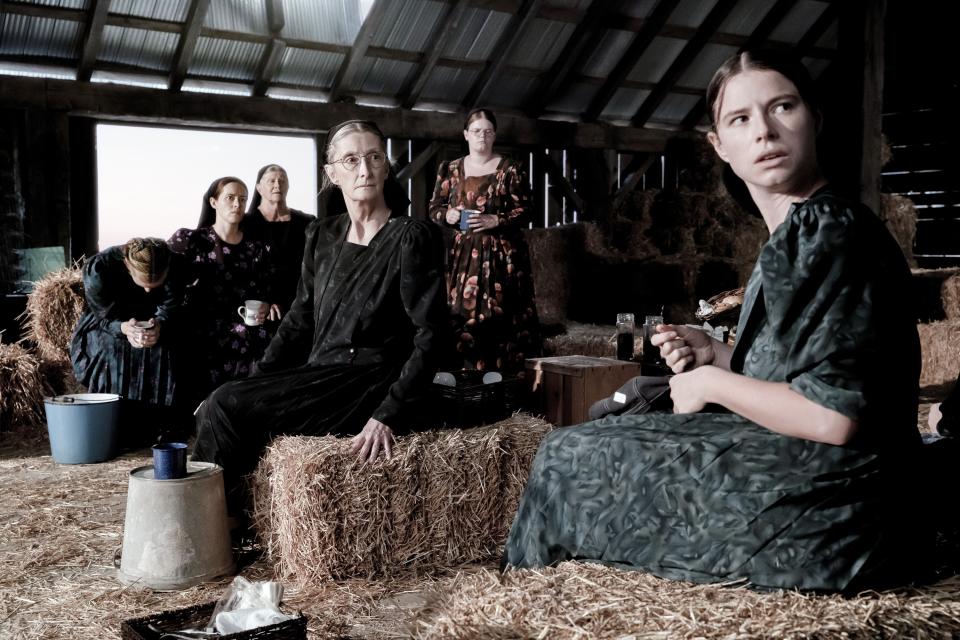
©Orion Pictures Corp/Courtesy Everett Collection
5. Sarah Polley wrote a pass on the “Women Talking” script from every character’s point of view.
That’s each of the eight Mennonite women who debate whether to stay at their colony and confront the men who have been raping them and their daughters, or leave and face the unknown and the possibility of never getting into heaven.
“Yeah, I had to,” Polley said. “I had to track each of the characters even through the scenes where they weren’t speaking. Everything that gets said in that room impacts the characters. Sometimes things are transformative for them, even if they’re not participating in the conversation. To just give each of them their space and their respect, I had to write a draft as though they were the only main character and I think I did two passes for everybody. And then there are a couple of characters that I was still dropping the thread on in important ways so I did another one for them. Yeah, it was a long process.”
6. “Triangle of Sadness” writer-director Ruben Ostlund pitches his movies before he writes them.
Talking about them leads to other people’s ideas that may wind up in the movie. “When I have that process of telling people, ‘OK, my next film is called “The Entertainment System is Down,” it takes place on a long flight when the entertainment system has stopped working,’ people come up with great ideas and you steal the best ideas… It like playing ping pong with different brains.”
On “Triangle of Sadness,” he included his own story of fighting with his fashion photographer fiancee about paying the dinner bill. At the height of their spat he said, “This isn’t about money!” and stuffed a big bill down an elevator shaft. (He says it’s still at the Martinez Hotel in Cannes.) For “Triangle,” Abigail (Dolly De Leon) came out of one of his students suggesting that he change the character from a man to a woman.
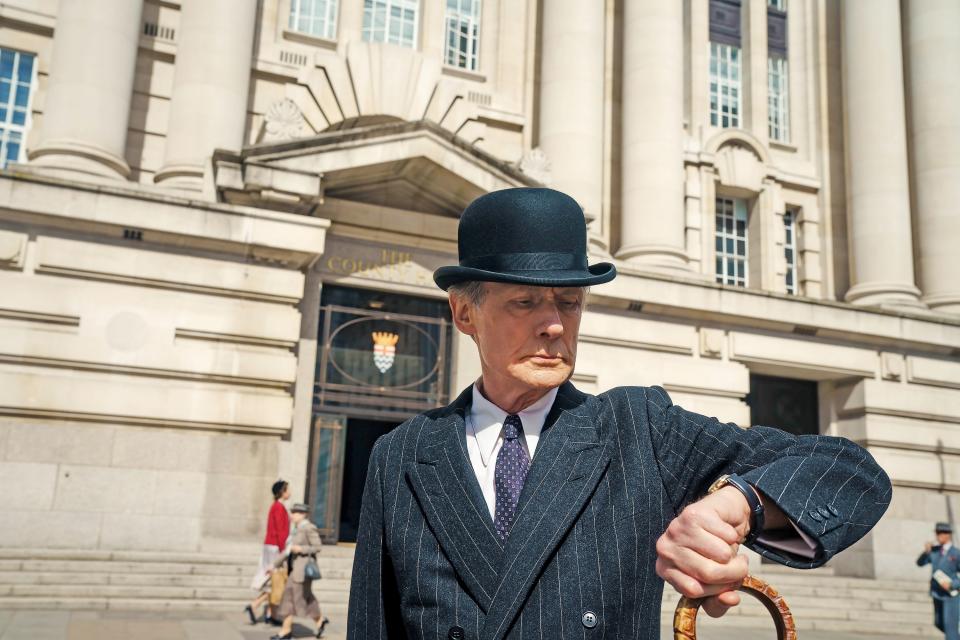
©Sony Pictures/Courtesy Everett Collection
8. Inspiration for “Living” came to Kazuo Ishiguro in a London taxi.
The novelist (“The Remains of the Day,” “Never Let Me Go”) and screenwriter had long been a fan of Akira Kurosawa’s 1952 “Ikiru” (itself inspired by Leo Tolstoy’s novella “The Death of Ivan Ilyich.”). “I found myself in the back of a cab with a great British actor, Bill Nighy,” Ishiguro said. “And I just had this kind of a ‘eureka!’ moment. I thought, ‘Well, we can be making this as an English film with Bill Nighy.’ Bill is one of the great actors who can express emotion through restraint. There’s so much more layers and layers going on underneath. And yet they present themselves in a very stoic, controlled way. For me, there’s a lot of stuff about Englishness that I wanted to do within the film. But essentially, we’re talking about a universal idea.”
9. Rian Johnson’s frustration with the whodunit genre drove the “Knives Out” franchise into the present day.
“Although I mad love all the whodunit movies I watched growing up, they’re all period pieces mostly set in England in this fuzzy nostalgic world,” he said. “The whodunit as a genre is specifically a machine good at creating a microcosm that can be used to take a look at things, and it hasn’t really been used as that for a while. I thought ‘Boy, it would be really interesting to take this genre and set it unapologetically in the here and now, let go of any notion of timelessness.’ That’s what [Agatha] Christie was doing back in her day. She wasn’t working period pieces through her whole life. She was writing present-day stories.”
Johnson denies that he was aiming at Elon Musk with Edwards Norton’s Miles Bron character. “When I was writing, it was a different set of tech douchebags,” he said. “When I was writing, the more specifically I thought about any one person, the less interesting it quickly became. To me, a lot more interesting was the kind of power structure that results from that society and these people’s place. And also, my relationship to them: I know I have that thing inside myself… of mistaking wealth for competence. And I know I’m guilty of that and as much as I love to lecture these people, there’s something deep down inside that also thinks maybe there’ll be a Willy Wonka to take us up in the great glass elevator to Mars at the end of the day. I was writing to the dynamics that come about because of that, which was more interesting than just making fun of what’s his name.”
You can watch the full panel below.
Best of IndieWire
Sign up for Indiewire's Newsletter. For the latest news, follow us on Facebook, Twitter, and Instagram.

